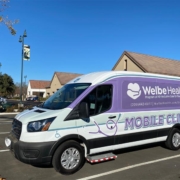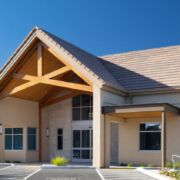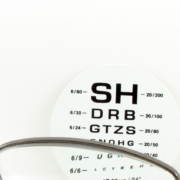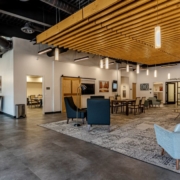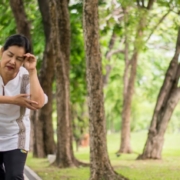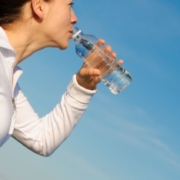H0934_1024Pas_WelbeHealthWeb_CMS Approved_04/04/22, H1544_1024Lon_WelbeHealthWeb_ CMS Approved_04/04/22, H2384_1024Fre_WelbeHealthWeb_ CMS Approved_04/04/22, H8082_1024Sto_WelbeHealthWeb_ CMS Approved_04/04/22, H8082_1028Mod_WelbeHealthModPage_CMS Approved_5/10/22, H8082_1030Sto_WelbeHealthWelcome_CMS Approved 07/20/2022, H0934_1030Pas_WelbeHealthWelcome_ CMS Approved 07/20/2022, H1544_1030Lon_WelbeHealthWelcome_ CMS Approved 07/20/2022, H2384_1030Fre_WelbeHealthWelcome_ CMS Approved 07/20/2022, H8082_1034Sto_WelbeHealthTestimonial_ CMS Approved 07/20/2022, H0934_1034Pas_WelbeHealthTestimonial_ CMS Approved 07/20/2022, H1544_1034Lon_WelbeHealthTestimonial_ CMS Approved 07/20/2022, H2384_1034Fre_WelbeHealthTestimonial_ CMS Approved 07/20/2022, H0934_WBHWeb_152_Rosemead_CMS Approved 06/12/2023, H0934_WBHWeb_152_NorthHollywood_CMS Approved 06/12/2023, H6317_WBHWebLocation_166_SanJose_CMS Approved 01/05/2024,H8082_WBHWebLocation_166_Modesto Approved 5/14/2024, H1917_WBHWebLocation_166_RIVCVY Approved 5/14/2024
Tour our PACE center in Stockton, California
Check out our amazing PACE center in Stockton.
Wildfire Safety Tips for Seniors
- Remain indoors when at all possible. Keep windows closed to decrease exposure to smoke.
- If you MUST go out wear a mask and limit time outside.
- Any worsening cough, congestion or wheezing, please call your PACE center right away.
- If you need refills on your respiratory medications including inhalers please call and we are happy to refill if appropriate.
To find out more about PACE services we provide, please click here.
Free photo 1024746 © Frank Farrell – Dreamstime.com
Vision Exam Month
August is National Vision Exam Month. Healthy vision is important for people of all ages and is key for seniors to be able to live more independent lives in their homes and communities. Here are some tips from the CDC on how to keep your eyes healthy.
Try 6 Tips for Healthy Eyes—and a Healthy You
- Add more movement to your day. Physical activity can lower your risk for health conditions that can affect your vision, like type 2 diabetes and high blood pressure. As a bonus, it can help you feel your best. Pick activities you enjoy and remember, anything that gets your heart beating faster counts!
- Get your family talking… about eye health history. Some eye diseases—like glaucoma and age-related macular degeneration—can run in families. Although it may not be the most exciting topic of conversation, talking about your family health history can help everyone stay healthy. Ask your relatives if they know about any eye problems in your family. Be sure to share what you learn with your eye doctor to see if you need to take steps to lower your risk.
- Step up your healthy eating game. Eating healthy foods helps prevent health conditions—like type 2 diabetes or high blood pressure—that can put you at risk for eye problems. Eat dark, leafy greens like spinach, kale, and collard greens that are high in antioxidants called lutein and zeaxanthin, which help prevent macular degeneration and cataracts. Also pick up some fish high in omega-3 fatty acids like halibut, salmon, and tuna.
- Stay on top of long-term health conditions—like diabetes and high blood pressure. Diabetes and high blood pressure can increase your risk for some eye diseases, like glaucoma. If you have diabetes or high blood pressure, ask your doctor about steps you can take to manage your condition and lower your risk of vision loss.
- If you smoke, make a quit plan. Quitting smoking is good for almost every part of your body, including your eyes! That’s right—kicking the habit will help lower your risk for eye diseases like macular degeneration and cataracts. Quitting smoking is hard, but it’s possible—and a quit plan can help. Call 1-800-QUIT-NOW (1-800-784-8669) for free support.
- Give your eyes a rest. Looking at a computer for a long time can tire out your eyes. Follow the 20-20-20 rule—rest your eyes by taking a break every 20 minutes to look at something about 20 feet away for 20 seconds.
Regular vision exams are part of the comprehensive services provided by PACE. For more about PACE services, click here.
Free photo 5904867 © Nedim Jukić – Dreamstime.com
Welbe’s Long Beach PACE Center Launches
The Long Beach Press Telegram covered the launch of our newest PACE center in Long Beach – LA Coast PACE:
LONG BEACH
By Gary Metzker
The golden years aren’t so golden for many these days, as the coronavirus pandemic shows no signs of abating.
At least 38,000 U.S. residents of nursing homes and other long-term care facilities for older adults have died from the coronavirus, according to the Centers for Disease Control. More than 142,000 people at those facilities have contracted the virus, and at least 90,000 more cases are suspected.
In California, there have been more than 2,400 deaths in long-term care facilities, and according to the Long Beach Health and Human Services Department, 118 deaths have been associated with long-term care facilities in the city.
Many families are not aware that there are other alternatives besides skilled nursing or assisted living facilities, especially during this health crisis.
WelbeHealth is an operator of Medicaid’s Program of All-Inclusive Care for the Elderly (PACE) across California. Its newest facility is in Long Beach at 1220 E. Fourth St., but because of the coronavirus pandemic, no one is visiting the location. Instead, the company has transitioned to a remote, at-home care model to serve seniors while keeping them physically shielded from the spread of the virus.
According to Sophia Guel-Valenzuela, regional vice president and executive director of the Long Beach facility, having seniors in a PACE program is a safer alternative because it can provide necessities, meal deliveries throughout the day, assistance in the home and meaningful social engagement.
“There has never been a stronger imperative to keep seniors living more independently in their homes and communities,” she said. “Our goal is to keep seniors socially engaged through games and special events. It’s important to keep people safe.”
Guel-Valenzuela said each client gets a 4G LTE tablet to use that enables them to talk to a doctor or a social worker as well as interacting with other people.
“The highlight of my week is to see the engagement going on,” she said. “Engagement coordinators host trivia games, bingo, card games. It’s like a big Zoom meeting.”
Guel-Valenzuela believes the combination of staying at home with interactivity is the template of the future for senior care.
“It’s safer to stay at home now,” she said. “I’ve been doing this for 18 years and this model of coordinated care is something I believe in.”
PACE provides comprehensive medical and social services enabling older adults to live in the community instead of a nursing home or other care facility. Its services are available at no cost to most participants as part of their Medicare and MediCal benefits.
“In our HomePACE model of remote care, we help seniors stay healthy and thriving while avoiding nursing facilities, which have tragically become hotbeds for the spread of coronavirus,” said Dr. Si France, founder and CEO of WelbeHealth in a statement. “We’re excited to expand our all-inclusive model of care into greater Long Beach to serve more vulnerable seniors when they need it most.”
WelbeHealth’s Long Beach location is accepting applications. Families can call 1-800-734-8041.
To learn more about PACE and services we provide, click here.
Tips to Stay Safe During Heatwaves
We are getting well into the summer months which means, hotter temperatures. We’ve already seen a couple of heat waves come through California summer is officially only a few weeks old! In addition to the heat, power outages can occur during these high-temperature periods.
Please take measures to stay cool and remain hydrated. Getting too hot can make you sick. You can become ill from the heat if your body can’t compensate for it and properly cool you off. As we age our bodies cannot handle the heat like they did when we were young. Extreme heat can affect us in the following ways: The main things affecting your body’s ability to cool itself during extremely hot weather are:
- High humidity. When the humidity is high, sweat won’t evaporate as quickly. This keeps your body from releasing heat as fast as it may need to. High humidity can cause you to sweat excessively which can lead to dehydration. When your sweat does not evaporate quickly it can lead to feeling overly tired.
- Personal factors. Age, obesity, fever, dehydration, heart disease, mental illness, poor circulation, sunburn, and prescription drug and alcohol use all can play a role in whether a person can cool off enough in very hot weather. Other factors that can play a role in adverse effects of heat would include fever, medical conditions, poor circulation, certain prescription drug and use of alcohol.
- Muscle cramping may be an early sign of heat-related illness.
You are potentially at the highest risk for heat-related illness during these heatwaves. When it becomes hot outside, ask yourself these questions:
- Are you drinking enough water?
- Do you have access to air conditioning?
- Do you need help keeping cool?
You can take the following protective actions to prevent illness or death:
- Stay in air-conditioned buildings as much as you can. Air-conditioning is the number one way to protect yourself against heat-related illness or complications.
- Drink more water than usual and don’t wait until you’re thirsty to drink.
- Check on a friend or neighbor and have someone do the same for you.
- Try not to use the stove or oven to cook—it will make you and your house hotter.
- Try cool showers or baths to help you cool down.
Try to avoid going out in the hot sun, but If you need to go outside during hot weather:
- Limit your outdoor activity, especially when the sun is hottest.
- Wear and reapply sunscreen as indicated on the package.
- Pace your activity, start activities slow and pick up the pace gradually.
- Drink more water than usual and don’t wait until you’re thirsty.
- Wear loose, lightweight, light-colored clothing.
- Be careful in the sun to avoid sunburn. If you can see through your clothing you can get sunburned through them.
For additional tips from the CDC on keeping cool, click here.
To learn more about the services provided by our PACE program, click here.
Benefits of Pets for Seniors
June 26th is Take Your Dog to Work Day! Per the CDC, there are many health benefits of owning a dog or pet, including helping seniors live more independent lives in their homes and communities. They can increase opportunities to exercise, get outside, and socialize. Regular walking or playing with pets can decrease blood pressure, cholesterol levels, and triglyceride levels. Pets can help manage loneliness and depression by giving us companionship. Most households in the United States have at least one pet.
Studies have shown that the bond between people and their pets can increase fitness, lower stress, and bring happiness to their owners. Some of the health benefits of having a pet include:
- Decreased blood pressure
- Decreased cholesterol levels
- Decreased triglyceride levels
- Decreased feelings of loneliness
- Increased opportunities for exercise and outdoor activities
- Increased opportunities for socialization
WelbeHealth recognizes these benefits, which is why it was important to us to rescue our participant’s dog last year. Click here for the story and link to video.
To learn more about PACE and the services that we provide, click here.
Heat stress in older adults
Safety is key for seniors to live more independent lives in their homes and communities. To help seniors stay safe during periods of high heat, here’s an article by the CDC regarding heat and older adults.
People aged 65 years or older are more prone to heat-related health problems. If you’re an older adult or a caretaker, review this page for information on how you or the person you’re caring for can stay safe during the heat.
Why are older adults more prone to heat stress?
- Older adults do not adjust as well as young people to sudden changes in temperature.
- They are more likely to have a chronic medical condition that changes normal body responses to heat.
- They are more likely to take prescription medicines that affect the body’s ability to control its temperature or sweat.
Stay cool, stay hydrated
- Stay in air-conditioned buildings as much as possible. If your home doesn’t have air conditioning, contact your local health department or locate an air-conditioned shelter in your area.
- Do not rely on a fan as your main cooling source when it’s really hot outside.
- Drink more water than usual and don’t wait until you’re thirsty to drink.
- If your doctor limits the amount of fluids you drink or has you on water pills, ask them how much you should drink during hot weather.
- Don’t use the stove or oven to cook—it will make you and your house hotter.
- Wear loose, lightweight, light-colored clothing.
- Take cool showers or baths to cool down.
- Do not engage in very strenuous activities and get plenty of rest.
- Check on a friend or neighbor and have someone do the same for you.
- Follow additional tips on how to prevent heat-related illness.
Stay informed
- Check the local news for health and safety updates.
- Seek medical care immediately if you have, or someone you know has, symptoms of heat-related illness like muscle cramps, headaches, nausea or vomiting.
As always, participants of WelbeHealth PACE programs can contact their center to find resources to stay cool during periods of extreme heat. For more on the services our PACE program provides, click here.
HVAC Maintenance for Seniors
With the summer season in full swing, its important your air conditioner is in top form. This is doubly important for the seniors that we serve, as summer typically bring with it increased cases of heatstroke. Have your HVAC inspected and tuned by a certified technician.
What your tune-up should include
A technician should do the following during an A/C tune-up:
- Inspect the entire system
- Clean all coils
- Clean and drain the condensate line
- Lubricate moving mechanical parts
- Replace the air filter
- Check thermostat controls and system wiring
- Inspect ductwork
- Check fluid and pressure levels
The CDC also lists other reasons why maintaining your HVAC systems are important. WelbeHealth wants to stress that an important part of living independently at home and in your communities includes doing so safely during the warmer months. If you are having trouble keeping cool, contact us and we can help you find the resources available to you.
To learn more about the services PACE offers, click here.


